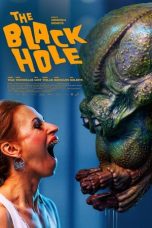The Lobster (2015) Review: A Darkly Hilarious and Disturbing Satire on Modern Relationships
The Lobster is a 2015 dystopian black comedy directed by Yorgos Lanthimos, known for his unique and often unsettling approach to storytelling. Set in a bizarre world where single people are turned into animals if they fail to find a romantic partner within 45 days, the film is both a biting satire of societal norms and a deeply unsettling exploration of human relationships. With its deadpan humor, surreal atmosphere, and thought-provoking themes, The Lobster stands out as one of the most original and polarizing films of the 21st century.
Plot Summary: A World of Brutal Choices
The film is set in a dystopian future where being single is not just frowned upon—it’s illegal. Those who find themselves without a partner are sent to a secluded hotel where they must find a suitable mate within 45 days. If they fail, they are transformed into an animal of their choice and released into the wild. David (Colin Farrell), the film’s protagonist, is a recently divorced man who arrives at the hotel with his brother, who has already been turned into a dog.
As David navigates the bizarre rituals and rules of the hotel, he befriends other singles, including the Limping Man (Ben Whishaw) and the Lisping Man (John C. Reilly), both of whom are desperately trying to avoid transformation. The hotel’s manager (Olivia Colman) oversees the process with cold efficiency, emphasizing the importance of compatibility and punishing any displays of individuality.
When David meets the Heartless Woman (Angeliki Papoulia), a ruthless and unemotional guest, he decides to feign compatibility with her to escape his fate. However, as their relationship progresses, David realizes that this is not the life he wants. He eventually escapes the hotel and joins a group of rebels known as the Loners, led by Léa Seydoux. In this group, any form of romantic interaction is strictly forbidden, creating a stark contrast to the hotel’s oppressive focus on coupling.
David eventually falls in love with the Short-Sighted Woman (Rachel Weisz), one of the Loners, leading to a final act that is as shocking as it is ambiguous.
Performance and Characterization: A Stellar Cast in an Absurd World
Colin Farrell delivers a brilliantly understated performance as David, a man who is both numb and desperate in the face of the bizarre demands of society. Farrell’s portrayal is marked by a deep sense of melancholy and resignation, making David’s journey both tragic and darkly comic. His transformation from a passive participant in the hotel’s rituals to a man willing to risk everything for love is subtle yet powerful.
Rachel Weisz is equally compelling as the Short-Sighted Woman, bringing warmth and depth to a character who, like David, struggles to navigate the conflicting demands of her environment. Weisz’s narration throughout the film adds an additional layer of irony and detachment, underscoring the absurdity of the world they inhabit.
The supporting cast is uniformly excellent, with Olivia Colman’s portrayal of the hotel manager standing out as particularly chilling. Her calm, almost motherly demeanor contrasts sharply with the cruelty of the institution she oversees. Ben Whishaw and John C. Reilly provide moments of dark humor as David’s fellow guests, each embodying the desperation and absurdity of the hotel’s rules in their own way.
Direction and Cinematography: A Surreal and Unsettling Vision
Yorgos Lanthimos’s direction is masterful, creating a world that is both familiar and disturbingly alien. The film’s tone is a delicate balance of deadpan humor and existential dread, with Lanthimos never allowing the audience to fully relax. The pacing is deliberate, allowing the absurdity of the situation to sink in and the horror of the characters’ predicament to gradually unfold.
The cinematography by Thimios Bakatakis complements Lanthimos’s vision perfectly, with stark, symmetrical compositions that emphasize the rigid and unnatural structure of the society depicted in the film. The muted color palette and often cold, clinical lighting contribute to the sense of detachment and unease that pervades the story.
The film’s use of music, including classical pieces and an ominous score by Johnnie Burn, further enhances the unsettling atmosphere. The contrast between the refined, often beautiful music and the brutal, dehumanizing actions on screen creates a jarring effect that lingers long after the film ends.
Themes and Social Commentary: A Savage Satire on Love and Society
The Lobster is rich with themes and social commentary, most notably its critique of the societal pressure to conform to certain relationship norms. The film’s dystopian world exaggerates the real-world obsession with coupledom and the stigmatization of single life, forcing characters to pursue relationships for survival rather than for genuine connection.
The hotel’s rigid rules about compatibility, where couples must share a defining characteristic (such as a limp or a lisp), satirize the often superficial criteria people use to evaluate potential partners. The transformation into animals serves as a metaphor for the dehumanization that occurs when individuals are forced into relationships that lack authenticity.
The film also explores the extremes of both conformity and rebellion. While the hotel represents the oppressive demand for conformity to societal expectations, the Loners represent the dangers of rejecting all forms of connection and intimacy. Both environments are portrayed as equally uninhabitable, suggesting that true freedom and happiness lie somewhere in between.
Where to Watch The Lobster Online
For those looking to experience the unique and unsettling world of The Lobster, here are some streaming options available, particularly in the United States:
Streaming Services
- Netflix: The Lobster is available for streaming on Netflix, making it accessible to a wide audience. It’s an ideal platform for those who want to explore the film’s unique blend of dark comedy and dystopian drama.
- HBO Max: The film may also be available on HBO Max, which frequently offers a selection of acclaimed independent films. Check the platform for availability.
- Amazon Prime Video: The Lobster is included in Amazon Prime Video’s streaming library, making it a convenient choice for subscribers who are already using Amazon’s services.
Rental/Purchase Streaming Services
- Apple iTunes: The Lobster can be rented or purchased on Apple iTunes, allowing viewers to watch the film at their convenience. The platform offers both HD and 4K versions for a high-quality viewing experience.
- Google Play Movies: Google Play Movies offers The Lobster for rent or purchase, providing flexibility for viewers who prefer to own their favorite films digitally.
- Vudu: Vudu is another excellent platform to rent or purchase The Lobster. Known for its high-definition streaming and wide selection, Vudu caters to those looking for a top-tier viewing experience.
- YouTube Movies: YouTube Movies provides an easy and accessible way to rent or buy The Lobster. It’s a popular choice for those who want to watch directly through the YouTube platform.
Final Thoughts: A Masterpiece of Dark Comedy and Social Commentary
The Lobster is a film that defies easy categorization. Its blend of dark humor, social satire, and dystopian horror creates a viewing experience that is as thought-provoking as it is unsettling. Yorgos Lanthimos’s distinct directorial style, combined with strong performances from Colin Farrell, Rachel Weisz, and the supporting cast, makes this film a standout in contemporary cinema.
For those who appreciate films that challenge conventional narratives and provoke deep reflection on the human condition, The Lobster is a must-watch. Its exploration of the absurdities of modern relationships, societal expectations, and the search for authenticity makes it a film that resonates on multiple levels. With its availability on various streaming platforms, there’s no reason to miss out on this darkly comedic and deeply disturbing cinematic experience.

















